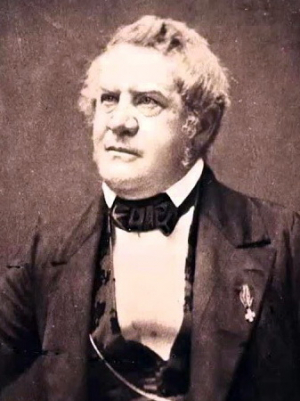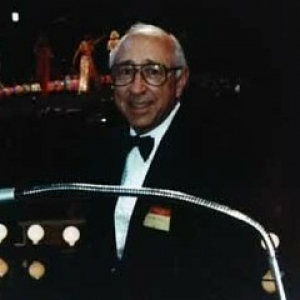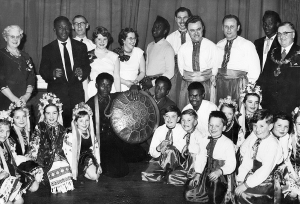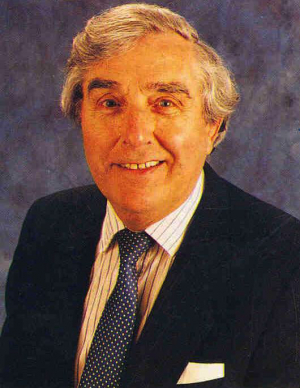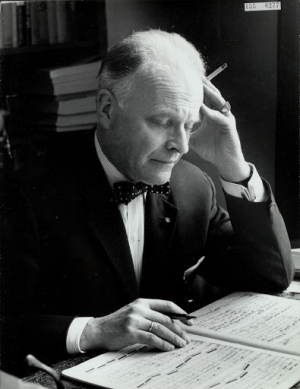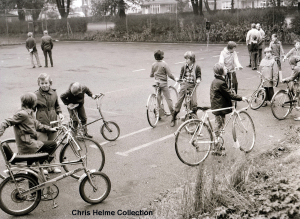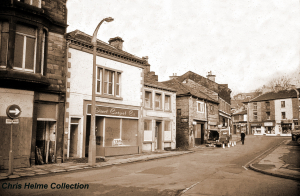
Chris Helme
Carl Gottlieb Reissiger was born 31 January 1798, Belzig and died on 7 November 1859, Dresden) was a German conductor and composer.
Reissiger attended the Thomas Schule zu Leipzig. In 1821, he followed the example of the young Beethoven and went toVienna to study where he also studied theology at the University of Leipzig Reissiger continued his musical studies in France and Italy in 1824, under the sponsorship of the Prussian Ministry of Cultural Affairs.
After working for two years as the musical director of the Dresden Opera, he succeeded Carl Maria von Weber as the conductor of the Dresden Court in 1828 and held this office until his death in 1859.
A famous piece known as Weber's Last Waltz was actually written by Reissiger (one of his opus 26 Danses Brillantes) and is mentioned in Edgar Allan Poe's The Fall of the House of Usher (1839) as one of Roderick Usher's favourite pieces of music; it is also the title of a 1912 film.
Reissiger left behind an extensive body of work that was distinguished above all by his vocal music, which included nine operas, one oratorio, nine Latin masses and another four in German, as well as sixty songs.
Besides his own works, he also won fame for conducting the premiere of Wagner's opera Rienzi in 1842. Reissiger's most successful compositions were the operas which included Die Felsenmuhle (The Mill on the Cliff) which was first performed in 1830. His great masses, composed for Catholic services at Court, are known to have rich melodies and warm feeling. The same can be said of his hymns, motets, and songs, which have been included in many collections, as well as of his oratorio David.
In addition, Reissiger wrote and published various forms of orchestral and chamber music. While these works revealed his skill and inventiveness, they fell out of fashion after his death and he has sometimes been referred to as the forgotten composer.
In this week’s show we feature the overture from Die Felsenmuhle, which was arranged for brass bands by William Rimmer.
Today representatives of banding bodies in the four UK nations met with Caroline Dinenage MP to discuss the impact of post-Brexit travel restrictions on musicians and bands.
Abraham "Glenn" Osser (August 28, 1914 – April 29, 2014) was an American musician, musical arranger, orchestra leader, and song writer. His birthname was Abraham (Abe), but much of his work was under the name Glenn; he can be found with references under both names. He also worked under a number of other names Arthur Meisel, Bob Marvel, Maurice Pierre, and others.
He was born in Michigan in the US, the child of Russian-Jewish immigrants. He studied piano, violin, saxophone, and clarinet in high school and went on to study music at the University of Michigan, beginning in music education and switching to music theory. After graduating in 1935 he worked with a college dance band and, on advice from the band leader, moved to New York City, where he met music publisher Charles Warren, who became his mentor.
He soon started arranging and some radio work, hired by NBC to be a staff arranger. He also played sax and clarinet in some orchestras. He also got to work with Benny Goodman on his radio program, and wrote the arrangement of Martha Tilton's recording of " And the Angels Sing" with the Goodman orchestra. He wrote the melody to Ruth Lowe's number one hit, "I'll Never Smile Again", recorded by Tommy Dorsey and his Orchestra with the Piped Pipers and Frank Sinatra.
During World War II he served in the U.S. Maritime Service, After his discharge in 1944 he began to arrange for the Paul Whiteman orchestra. It was Whiteman who, disliking the name "Abe Osser," suggested the name "Glenn." He rehearsed and conducted Whiteman's orchestra on the NBC Blue Network, which became the ABC Network, and when Whiteman went on ABC television, Osser joined him.
Whiteman became music director at ABC and put Osser on as staff, where he served from 1947 to 1969, when staff orchestras were eliminated. During his time at ABC, In 1962, the New York Mets entered the National League and were greeted on the field by a recording of "Meet the Mets", arranged and recorded by the Glenn Osser Orchestra. The song is still played at Mets games and on broadcasts to this day.
Osser became an arranger/conductor, first for Mercury Records, where he backed such vocalists including, and later for Columbia Records, where he backed Doris Day, Jerry Vale and Johnny Mathis.
On television he was musical director for the 1949 series Blind Date (also titled Your Big Moment), conductor for the 1953 series The Vaudeville Show, and orchestrator and conductor for the 1957 production of Pinocchio. In 1959 he was the Orchestra leader for the series Music for a Summer Night, which was repeated the following year as Music for a Spring Night. Osser was the conductor and provided the arrangements for the 1963 Sergio Franchi RCA Victor Red Seal album, Broadway, I Love You!.
Osser was the long-time musical director and conductor for the Miss America Pageant. He co-wrote the opening numbers and incidental music with his wife Edna providing lyrics
He died at the age of 99 on April 29, 2014.
On this week’s show we are featuring his Cha Cha for Band played by Desford Colliery Band in 1973. Here is the name of another composer who you may have seen at the top right of your music and wondered who he was. Well, these few notes will give you an insight to a composer and musician who was at the top of his career.
Enjoy the show...
Here we have a multi-cultural photo from 1957 - Members of the West Indian community, who played calypso music, Urkranians, who presented folk dances and songs and members of the Brighouse Country Dancing Club, who contributed greatly to the success of an 'International' social organised by the club and the Brighouse United Nations Association (UNA) branch. On the extreme right and left are the Mayor and Mayoress, Alderman Harry Edwards JP and his wife Eliza.
Were you a member of this local branch - if you were can you offer any more information about it?
This week we welcome two more community radio stations who are now playing Sunday Bandstand on their weekly schedules. Ribble FM which is based in Clitheroe in the North West of England and Cofton Hackett Radio which is based just south of Birmingham in the Midlands here in the UK. This now means we have a total of 14 licensed community radio stations playing the show each week. On top of that we have almost 200 individuals who are based all around the world receiving the Mixcloud link to the show.
If you have a request or question about the world of brass bands you can contact me by email: This email address is being protected from spambots. You need JavaScript enabled to view it. On this week's show we also have a short musical tribute to the late James Scott.
Today, I received a telephone call that James Scott had sadly passed away, aged 95. It would be difficult to say in a few words about his brass band career. In 2003 I spent some time talking to James about his life time in the world of brass bands.
Here is the story I wrote, I appreciate that the end of the story would now have to be updated but I wanted to share it with you as I wrote it. Our overseas listeners may not be familiar with him but this story will illustrate what he meant to and what he has done for the brass banding world particularly here in the UK.
Jan Willem van Otterloo (27.12. 1907 – 2.7.1978) was a Dutch conductor, cellist and composer. He was born in Gelderland, in the Netherlands, the son of William Frederik van Otterloo, a railway inspector, and his wife Anna Catharina. He qualified to study medicine at Utrecht University but switched to studying cello and composition at the Amsterdam Conservatoire. While playing as a cellist in the Utrecht Stedelijk Orkest, he won a composition prize from the Concertgebouw Orchestra for his Suite No. 3, which he presented in his 1932 conducting debut, also with that orchestra. He held posts with other orchestras in The Netherlands.
He spent his last 11 years in Australia. From 1967 to 1970 he was chief conductor of the Melbourne Symphony Orchestra and in 1971 he was appointed chief conductor of the Sydney Symphony Orchestra, where he remained for the rest of his life.
Particularly prized for his performances of 19th and 20th-century music, he made numerous commercial recordings, mostly with the Residentie Orkest and others.
He died in the Melbourne suburb of East St Kilda in 1978 from injuries suffered in a road accident. His body was flown to The Hague for cremation.
Van Otterloo was married and divorced four times in the Netherlands.
He composed three piece and we are featuring his 1944 work Serenade which has been arranged by Klaas van der Woude for brass bands.
Cycling proficiency training at the old tennis courts on Blackburn Road was the place that many school children went and subsequently had their proficiency test there. I certainly remember going in the very late 1950s - early 1960s and I still have the certificate to prove it. Unlike the children of today we did not have to take a written test. If you did not pass that test it meant that you would not be able to take the practicle test. Let us hope that some consideration and help is given to those children who may have a reading problem. As we did went in later years when I was involved in the cycle training and then the testing of eight and nione year old.
Perhaps you are one of the children on this photograph which was taken about 25 years ago.
This photograph was taken during the 1960s, a time when parts of the town centre was starting to be demolished as part of the redevelopment scheme. How many readers can remember the little sweet shop on the left hand side, the one where the van is parked outside? That was where many of us would visit after attending the school swimming lesson, then make our way back to St Martin''s School. That is now almost 60 years ago.
Talks Available
All the presentations are timed to last up to an hour except where shown - questions are gladly taken after the presentation. All have been presented to male, female and mixed audiences of varying age groups.
-
A Postcard from the Past
The Sunny Vale Pleasure Gardens, Halifax - Yorkshire’s Alton Towers of the…
-
All in a Days Work
Reminiscences from 30 years in the Police Service – (humorous lecture presentation)…
-
Legends from the world of Brass Bands
(Info-tainment – digital slides & music) – 1 hour presentation.
-
A Week in May
A story based on the Murder of Lord Frederick Cavendish (of the…
- Memories of Christmas Past
-
The Road to Publication
In 1979 I was asked to assist in presenting a series of…
- Holiday Memories from the Past
-
How we used to live
We have all seen and experienced changes in our lives. Bring back…
-
Other Folks Rubbish (Not suited to a Zoom presentation)
With a local history theme… – (thought provoking humorous lecture presentation) –…
- So you want to be a Pirate ? - The life of a Pirate was not all that it seemed
- Superstitions, New Year Resolutions and the Origins of St Valentine's Day
- Brighouse at Work
-
Sorry but I am not able to accept any more face to face talk bookings at the present time ONLY ZOOM TALKS


